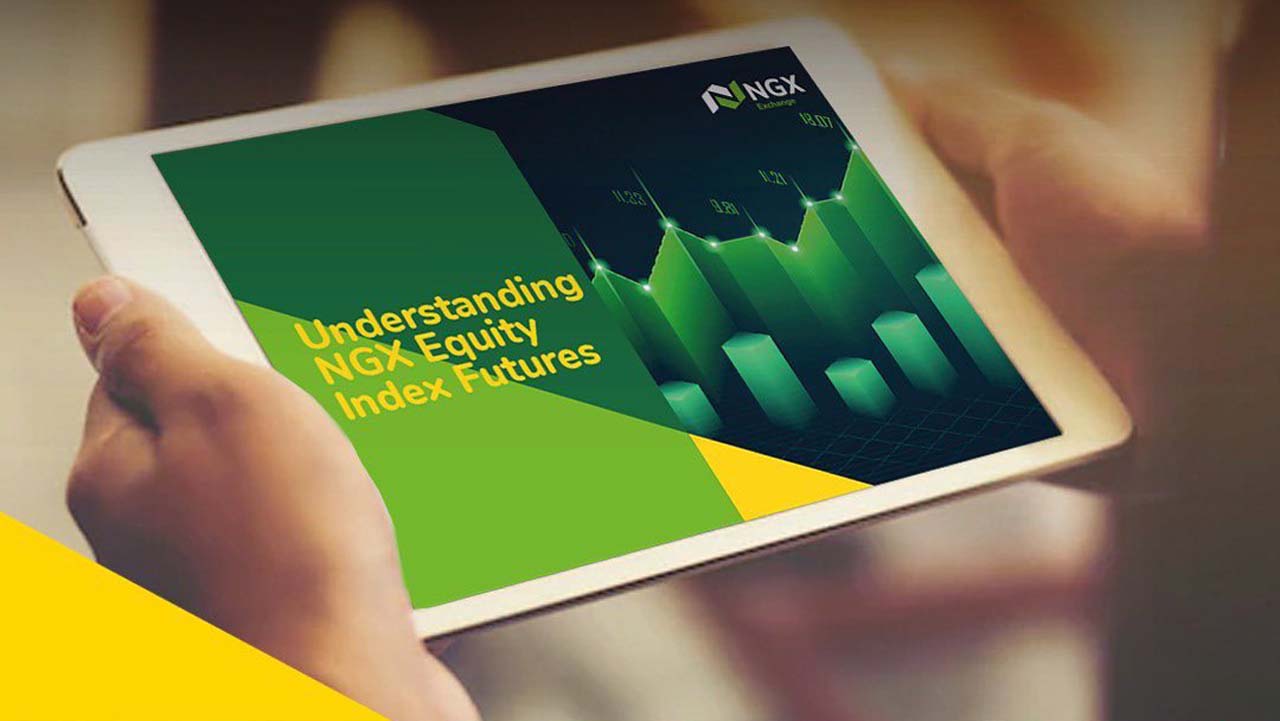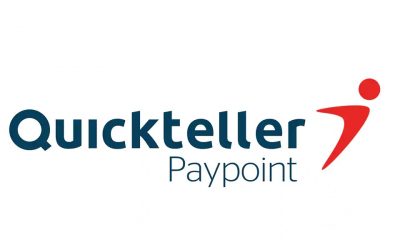Economy
Quickteller Paypoint Stops Collection of N100 Transaction Fee

By Modupe Gbadeyanka
Owners of foremost payment platform in Nigeria, Quickteller Paypoint, Interswitch Financial Inclusion Services (IFIS), have announced that customers using its platform would no longer be charged a fee to complete some transactions.
This is because the firm has sealed deals with key billers in various sectors (Betting, Energy and Electricity, Cable) companies that will enable customers transacting on its platform to conduct financial transactions at no charge.
Transactions that will enjoy this new benefit include utility bill payments, betting, wallet funding and cable TV subscription.
Before now, customers were required to pay a fee of N100 on each payment transaction, but Quickteller has now paired with some of the organisation’s biller partners to bear the transaction cost. As a result, customers can now make most of their transactions at no additional cost to them.
While this takes off the burden of transaction fees from the customers, it has been carefully processed to safeguard Quickteller Paypoint agents, such that they are able to retain their customary commission and other incentives.
Titilola Shogaolu, Divisional Chief Executive Officer (DCEO) of Interswitch Financial Inclusion Service, said: “At Interswitch Financial Inclusion Service, we are not only committed to closing the financial exclusion gap, we are continuously working to provide convenient services that will enhance the adoption of digital payments and this latest incentive is just one of the many ways through which we are achieving this”.
Quickteller Paypoint is a one-stop service that provides electronic payment solutions to the under-banked, through agents who earn exciting commissions and other incentives. The over 16,000 agents, who are spread across the country offer various financial services to customers, such as: bill payment, funds transfer, cash deposits, cash withdrawals, and airtime top-up.
The list of the billers that Quickteller Paypoint is partnering with to deliver this value service includes: Eko Electricity Distribution Company (EKEDP), Abuja Electricity Distribution Company (AEDC), Enugu Electricity Distribution Company (EEDC), Jos Electricity Distribution Company (JEDC), WAKABET, BETWAY, Kwese, Ariaria Market Energy Solutions Limited, Rensource and Zola Electric.
Shogaolu also spoke on the future plans of Quickteller. She said: “Quickteller Paypoint is not stopping at this. We are working hard to secure more of such deals in order to deliver better value to our customers, and more profit to our valued agents.”
Economy
NGX Index Shatters 190,000-point Barrier as Market Cap Hits N122trn

By Dipo Olowookere
The Nigerian Exchange (NGX) Limited recorded its highest single day growth in 2026 after it chalking up 4.36 per cent on Monday, helping the two market indices hit their all-time highs.
According to data from Customs Street, the All-Share Index (ASI) soared during the session by 7,949.36 points to 190,262.44 points from last Friday’s 182,313.08 points, and the market capitalisation surged by N5.103 trillion to N122.130 trillion from the preceding session’s N117.027 trillion.
A look at the sectorial performance showed that the industrial goods counter expanded by 7.77 per cent, the energy space rose by 4.73 per cent, the banking sector grew by 4.71 per cent, the insurance industry improved by 2.45 per cent, and the consumer goods segment jumped 1.44 per cent.
Business Post reports that investor sentiment remained bullish, as the bourse finished with 57 appreciating stocks and 27 depreciating stocks, implying a positive market breadth index.
Jaiz Bank, Beta Glass, Ikeja Hotel, Zichis and Aradel Holdings all chalked up 10.00 per cent each to sell for N9.13, N453.20, N41.80, N11.88, and N1,096.70, respectively.
However, RT Briscoe lost 9.99 per cent to trade at N15.68, Deap Capital decreased by 9.91 per cent to N7.64, Caverton crashed by 962 per cent to N7.05, Guinea Insurance shrank by 9.27 per cent to N1.37, and Tantalizers dropped 8.11 per cent to quote at N5.10.
Yesterday, market participants bought and sold 1.1 billion shares valued at N64.0 billion in 64,821 deals compared with the 936.4 million shares valued at N52.7 billion transacted in 50,068 deals last Friday, indicating an uptick in the trading volume, value, and number of deals by 17.47 per cent, 21.44 per cent, and 29.47 per cent apiece.
Access Holdings remained very active at the market, further closing as the busiest on Monday with 86.7 million units worth N2.3 billion, Oando sold 73.5 million units for N3.2 billion, Zenith Bank exchanged 69.3 million units valued at N5.9 billion, Mutual Benefits transacted 67.1 million units for N289.1 million, and Japaul traded 49.2 million units worth N135.6 million.
Economy
Oil Prices Rise 1% Ahead US, Iran Nuclear Talks

By Adedapo Adesanya
Oil prices moved up on Monday as investors weighed the implications of the forthcoming US-Iran talks aimed at de-escalating tensions against a backdrop of expected supply increases by the Organisation of the Petroleum Exporting Countries and allies (OPEC+).
Brent crude futures appreciated by 90 cents or 1.33 per cent to trade at $68.65 a barrel, while the US West Texas Intermediate (WTI) crude futures gained 86 cents or 1.37 per cent to close at $63.75 a barrel.
Fears of supply disruption from the US-Iran tensions have helped keep oil prices stable. The two countries are due to hold a second round of talks in Geneva, Switzerland, on Tuesday over Iran’s nuclear programme.
Iran has repeatedly threatened to close the Strait of Hormuz in retaliation against any attack, which would choke a fifth of global oil flows and send crude prices sharply higher.
Comments from US President Donald Trump that it could make a deal with Iran over the next month with US Secretary of State Marco Rubio emphasizing that the Trump administration prefers diplomacy with Iran, though military options remain implicitly on the table.
Iran signaled willingness to dilute 60 per cent enriched uranium but insists sanctions relief must be part of any agreement.
This comes ahead of new US-Iran talks in Geneva on February 17. The US delegation will include envoys Mr Steve Witkoff and Mr Jared Kushner, with representatives from Oman acting as mediators. Oman hosted indirect talks between Iran and the US earlier in February.
Ahead of the meeting, Iran’s foreign minister met with Mr Rafael Grossi, the head of the International Atomic Energy Agency (IAEA), the UN nuclear watchdog, on Monday.
Market analysts have warned that increased Iranian tension could drive Brent to $80 a barrel, while fading tension would drop it back to $60 a barrel.
OPEC+ is dampening oil prices as it appears the alliance is leaning toward a decision at their March 1 meeting to resume output increases from April after a three-month halt.
Oil prices also were supported by China’s continued strong crude imports and by some disruptions in oil exports.
China’s imports of Russian oil are set to climb for a third straight month in February, hitting a new record, after India slashed purchases following US pressure.
Economy
NCSP, NACCIMA Move to Unlock SME-led Industrial Growth

By Adedapo Adesanya
The Nigeria–China Strategic Partnership (NCSP) has reaffirmed its commitment to consolidate engagements with the Organised Private Sector while strengthening strategic collaboration to accelerate Nigeria’s industrial expansion, following a high-level meeting with the leadership of the Nigerian Association of Chambers of Commerce, Industry, Mines and Agriculture (NACCIMA).
The dialogue focused on aligning institutional efforts to deepen Nigeria–China economic cooperation and position Small and Medium Enterprises (SMEs) as primary beneficiaries of trade, manufacturing, and investment initiatives.
The Director-General of NCSP, Mr Joseph Tegbe, stated that the Partnership was established as a structured coordination platform to drive Nigeria’s strategic economic engagement with China in a disciplined and result-oriented manner.
He outlined its core mandates, including oversight of FOCAC-related initiatives, advancement of priority economic initiatives, and the facilitation of catalytic industrial projects across priority sectors.
Mr Tegbe emphasised that the next phase of engagement will prioritize harmonization of ongoing initiatives, stronger inter-agency coordination, and clearer execution frameworks to ensure Nigerian businesses, particularly SMEs, benefit more directly and sustainably from bilateral trade and investment initiatives.
According to a statement, NSCP said the meeting reviewed existing collaborations and investment pipelines, with both parties agreeing on the need to streamline coordination across federal and subnational levels to improve policy coherence, enhance implementation efficiency and eliminate fragmentation to take advantage of scale.
Mr Tegbe further highlighted the strategic importance of leveraging landmark trade instruments like China’s Zero-Tariff Agreement with African countries as a pathway to scale-up domestic manufacturing, deepen value addition, and strengthen Nigeria’s export competitiveness.
On his part, the President of NACCIMA and Chairman of the Organised Private Sector of Nigeria (OPSN), Mr Jani Ibrahim, commended NCSP’s structured engagement model and its deliberate focus on SMEs as drivers of inclusive industrial growth.
He reaffirmed the readiness of the organised private sector to collaborate closely with NCSP in mobilising enterprises, providing structured policy feedback, and ensuring measurable enterprise-level outcomes from Nigeria–China economic engagements.
Both sides identified practical pathways to integrate SMEs into manufacturing value chains linked to Chinese partnerships; expand agro-processing and value-added production; strengthen technical and vocational education collaborations to close industrial skills gaps; and promote the development of geo-cluster industrial parks capable of anchoring regional manufacturing ecosystems.
They agreed to establish a formal working interface to translate strategic alignment into measurable results, with defined focus areas including investment facilitation, SME capacity development, industrial cluster formation, and export-oriented growth.
The meeting underscores NCSP’s resolve to convert diplomatic goodwill into tangible economic gains, expand opportunities for Nigerian businesses and strengthen productive capacity, leveraging NACCIMA’s network, the statement added, saying this aligns with President Bola Tinubu’s Renewed Hope Agenda, which seeks to achieve sustained and inclusive growth anchored on industrial productivity and private-sector dynamism.
-

 Feature/OPED6 years ago
Feature/OPED6 years agoDavos was Different this year
-
Travel/Tourism10 years ago
Lagos Seals Western Lodge Hotel In Ikorodu
-

 Showbiz3 years ago
Showbiz3 years agoEstranged Lover Releases Videos of Empress Njamah Bathing
-

 Banking8 years ago
Banking8 years agoSort Codes of GTBank Branches in Nigeria
-

 Economy3 years ago
Economy3 years agoSubsidy Removal: CNG at N130 Per Litre Cheaper Than Petrol—IPMAN
-

 Banking3 years ago
Banking3 years agoSort Codes of UBA Branches in Nigeria
-

 Banking3 years ago
Banking3 years agoFirst Bank Announces Planned Downtime
-

 Sports3 years ago
Sports3 years agoHighest Paid Nigerian Footballer – How Much Do Nigerian Footballers Earn



















